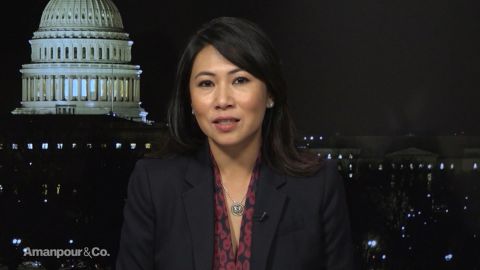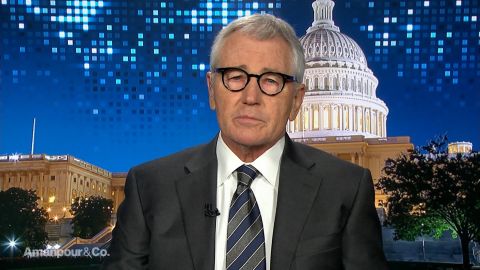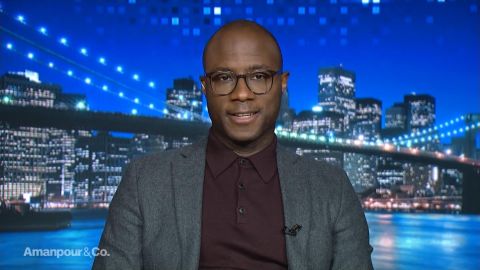Read Transcript EXPAND
CHRISTIANE AMANPOUR: You know, Barry, I mean it is almost extraordinary for us to be able to compute that this — well, I mean, you know, you yourself talk about a really unpleasant racial epithet being hurled at you or you heard it being discussed about you even at the very height of your Moonlight success. There you were, an Oscar-winning director and you yourself had to, you know — well, you were insulted.
BARRY JENKINS: Yes. It’s just — it’s a reality of life. I mean look, now 90 percent or 99 percent of the American population going around hurling racial slurs, no, of course not. But I do think these things still occur. And if they can occur to someone like me in a situation that it did, I can imagine what happens to someone who’s working a shift at McDonald’s or to a woman who is making her way into a 400 to 500 company. How do you rise through the ranks when there’s so much of this passive aggression hurled against you?
AMANPOUR: Let me ask you also about the topic. You’ve talked a lot about women but also you take on black rather male masculinity. You did it — well, black male masculinity frankly. You did it in Moonlight, a young gay man, boy growing up. The mother was a crack addict. It’s the first time that character has been so portrayed. And again here in If Beale Street Could Talk, the quintessential love and goodness that the male character Fonny displayed even as he was being railroaded, framed for this crime that he did not commit. These are very special portrayals.
JENKINS: I just happened to have the honor of adapting really amazing writers. Tarell Alvin McCraney who wrote the play that Moonlight is based on MacArthur Genius and James Baldwin is a genius, period. So in a way, I’m kind of cheating. But I think that both between myself and the actors, we’re looking to just basically reflect the world that we see. Black men have innocence and tenderness in their hearts but we rarely see that innocence and tenderness rendered in mass media. So I think for us when we’re making these films, it’s just about reflecting the characters that we see in our everyday lives. Brian Tyree Henry, Estefan James, a very warm, very just amazing young men. I think they bring part of themselves to these roles. And you’re absolutely right. Part of what I love about this job is going to be up to me to show all the multitude of blackness. I mean working from this book by James Baldwin which does contain multitudes, we can speak to both the light and the darkness of this particular aspect of the black experience.
About This Episode EXPAND
Christiane Amanpour speaks with former U.S. Secretary of Defense Chuck Hagel about what’s at stake for the country; and film director Barry Jenkins about his new film “If Beale Street Could Talk.” Michel Martin speaks with U.S. Rep. Stephanie Murphy about diversity and immigration.
LEARN MORE


